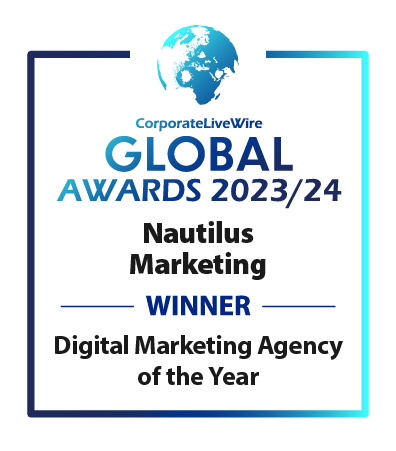Cryptocurrency was once a niche interest of the internet denizens of the world. However, it has now emerged as a mainstream financial phenomenon that has captured the interests of both investors and technologists alike with its promise of decentralised digital currency.
The adoption of cryptocurrencies continues to rise, so the need for effective marketing strategies to navigate this dynamic landscape rises also, which is where crypto marketing enters the stage. Cryptomarketing cannot rely on the strategies of traditional marketing as the principles are at odds with crypto itself; the idea of decentralisation runs too deep to corroborate with the centralised channels of traditional marketing. Let’s delve a little further into what sets the two apart.
Key Objectives of Crypto Marketing
Crypto marketing encompasses metrics beyond the realm of traditional marketing, such as brand awareness and customer acquisition, and while these remain important in the overall strategy, there are broader aims to achieve that are intrinsic to the success and sustainability of digital currencies.
Building Trust
Building trust is a number one priority for cryptocurrency, so that objective is placed at the head of the strategy in crypto marketing. The industry is fraught with volatility and uncertainty, so crypto marketing needs to establish credibility and transparency through clear communication, ethical practices, and reliable customer support.
Educating Users
As a relatively nascent technology, the ins and outs of how it works can still seem shrouded in mystery for many individuals. Crypto marketing works to educate users about the fundamentals of blockchain technology and its uses, the benefits of decentralisation, and best practices for securely managing digital assets.
Driving Adoption:
For any new product or technology, the success hinges on widespread adoption. The iPhone didn’t hit the market as the ubiquitous mobile phone, it became that way after consumers started making the switch in droves (but let’s not get into the iPhone vs Android debate just now).
Crypto marketing campaigns are designed to incentivise users to embrace digital currencies, whether through investment, transactional use, or participation in decentralised networks.
Aligning crypto marketing strategies with these key objectives allows for the effective navigation of challenges within the industry and maximises their potential for success in digital finance.

How Crypto Projects Utilise Social Media for Marketing Purposes
Crypto marketing involves social media marketing and serves as a pivotal tool for crypto projects to engage with their audience, amplify their message, and foster community growth. They are as follows:
Announcements and Updates
Projects use social media platforms to announce product launches, partnerships, updates, and important milestones, keeping their community informed and engaged.
Community Engagement
Social media enables projects to engage with their community, answer questions, gather feedback, and foster meaningful interactions through polls, discussions, and contests.
Content Sharing
Projects share educational content, articles, videos, infographics, and blog posts related to blockchain technology, cryptocurrencies, and project developments to educate and inform their audience.
Influencer Collaborations
Projects collaborate with influencers and industry experts on social media to amplify their message, reach new audiences, and build credibility through endorsements, sponsored content, and partnerships.
Tips for Effective Social Media Marketing in the Crypto Industry
Consistent Branding
Maintain consistent branding across social media platforms to reinforce your project’s identity and messaging.
Engagement and Interaction
Actively engage with your audience by responding to comments, messages, and mentions, fostering two-way communication and building relationships with your community.
Content Variety
Diversify your content mix with a combination of text, images, videos, and infographics to keep your audience engaged and cater to different preferences and formats.
Timing and Frequency
Post content at optimal times when your audience is most active and adjust the frequency of posts to maintain a consistent presence without overwhelming your followers.
Analytics and Optimisation
Use social media analytics tools to track the performance of your posts, monitor engagement metrics, and optimise your strategy based on data-driven insights.
By implementing these tips and leveraging the unique features of each social media platform, crypto projects can effectively harness the power of social media marketing to expand their reach, engage their audience, and drive community growth.
Search Engine Optimisation (SEO)
Search Engine Optimisation (SEO) is essential for crypto projects to improve their online visibility, attract organic traffic, and establish credibility within the competitive digital landscape. Let’s explore the importance of SEO for crypto projects, strategies for optimising crypto-related content, and tools and techniques for effective SEO in the crypto niche.
Importance of SEO for Crypto Projects
In the highly competitive crypto industry, where numerous projects vie for attention and visibility, SEO plays a crucial role in driving organic traffic and attracting potential users, investors, and stakeholders. Here’s why SEO is vital for crypto projects:
Increased Visibility
SEO helps crypto projects rank higher in search engine results pages (SERPs), increasing their visibility and exposure to a broader audience of potential users and investors.
Credibility and Trust
Higher search engine rankings enhance a project’s credibility and trustworthiness in the eyes of users, investors, and stakeholders, positioning it as a reputable authority within the crypto space.
Cost-Effective Marketing
Organic traffic generated through SEO is cost-effective compared to paid advertising, offering long-term benefits and sustainable growth for crypto projects.
Unique Challenges Faced by Crypto Marketers
Regulatory Uncertainty
Crypto marketers must contend with regulatory uncertainty and evolving legal frameworks, which vary significantly across jurisdictions. Navigating compliance requirements and ensuring adherence to regulations presents a complex challenge for marketers operating in the crypto space.
Market Volatility
The inherent volatility of cryptocurrency markets poses a challenge for marketers in terms of planning and executing long-term strategies. Fluctuating prices, market sentiment, and investor behaviour can impact marketing campaigns and necessitate adaptability and agility in response to market dynamics.
Trust and Credibility
Building trust and credibility in an industry characterised by scepticism and speculation can be challenging. Overcoming perceptions of risk and uncertainty requires transparency, authenticity, and consistent communication to foster trust among users, investors, and stakeholders.

Opportunities for Innovation and Creativity in Crypto Marketing
Blockchain Technology
Leverage the innovative potential of blockchain technology to drive creative marketing campaigns, such as token-based incentives, decentralised applications (dApps), and blockchain-based loyalty programs. Explore the unique features of blockchain, such as transparency, immutability, and decentralisation, to differentiate your marketing efforts and engage with your audience.
Community Engagement
Harness the power of community-driven initiatives to foster engagement, advocacy, and loyalty among your audience. Empower your community to contribute to marketing efforts through user-generated content, community-driven contests, and collaborative campaigns, leveraging the collective wisdom and enthusiasm of your supporters.
Educational Content
Capitalise on the demand for educational resources in the crypto space by creating informative and accessible content that addresses the needs and interests of your target audience. Develop tutorials, guides, explainer videos, and thought leadership content to educate users, demystify complex concepts, and position your project as a trusted source of information.
Case Studies
Analysing successful crypto marketing campaigns from prominent projects like Bitcoin and Ethereum provides valuable insights into effective strategies and lessons learned that can be applied to other crypto projects seeking to enhance their marketing efforts.
Bitcoin
Campaign
Bitcoin’s marketing success largely stems from its organic growth and grassroots adoption, driven by the vision of its creator, Satoshi Nakamoto, and a passionate community of early adopters. Bitcoin’s marketing strategy focuses on education, advocacy, and network effects, emphasising its core value proposition as a decentralised digital currency and store of value.
Lessons Learned
Focus on Core Value Proposition: Bitcoin’s marketing success underscores the importance of emphasising the core value proposition of a project, such as decentralisation, security, and scarcity, to resonate with users and investors.
Community Engagement: Building a strong and passionate community is essential for fostering trust, credibility, and widespread adoption. Bitcoin’s community-driven approach to marketing highlights the power of grassroots movements and decentralised networks in driving growth and adoption.
Ethereum
Campaign
Ethereum’s marketing success lies in its innovative approach to blockchain technology, smart contracts, and decentralised applications (dApps), positioning itself as a platform for building decentralised solutions and enabling a new era of programmable money and digital assets. Ethereum’s marketing strategy focuses on developer outreach, ecosystem growth, and thought leadership, leveraging educational content, developer resources, and community-driven initiatives to drive adoption.
Lessons Learned
Developer Ecosystem: Ethereum’s marketing success demonstrates the importance of nurturing a vibrant developer ecosystem, providing tools, resources, and support to enable innovation and experimentation in building decentralised applications.
Thought Leadership: Establishing thought leadership and credibility within the industry is crucial for positioning a project as a leader in its niche. Ethereum’s thought leadership initiatives, such as developer conferences (DevCon) and educational platforms like Ethereum.org, help educate, inspire, and empower developers and users to participate in the Ethereum ecosystem.
Now you’re armed with the knowledge of what crypto marketing is all about, such as its significance, strategies, challenges and opportunities within the cryptocurrency industry. The main takeaway to consider is its main role in building trust and educating users, so that ultimately it can drive the widespread adoption of digital currencies.
The future of crypto marketing is gilded in continued growth and evolution and will have been paved by advancements in technology, changing consumer behaviours and regulatory developments.
Crypto marketing stands firm at the forefront of innovation, creativity, and disruption, shaping the future of finance and revolutionising the way we perceive and interact with digital currencies. As the industry continues to mature and evolve, the importance of effective marketing strategies in driving adoption and success cannot fall to the wayside, as crypto marketers play an indispensable role in shaping the trajectory of the crypto industry.





